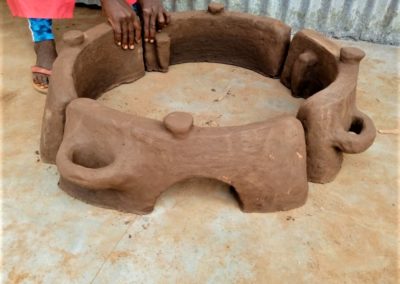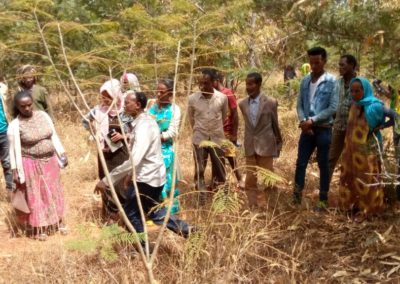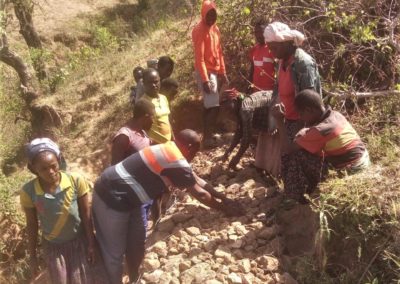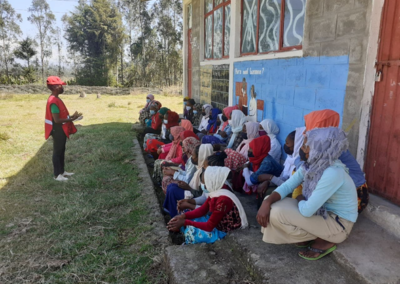written by Gashaw Dagne
My name is Gashaw Dagne, Austrian Red Cross supported programs coordinator in Ethiopian Red Cross Society, Since August 2019.
I first heard the information about the Skybird Programme when I was participating in the inception workshop conducted in the ERCS training centre. I was invited to join as a professional volunteer, from April 16 – 18, 2019 in Addis Ababa. I learned a lot about the Programme from the presentations and discussions during the workshop i.e, the seven thematic areas, how the micro-project proposal development by ERCS branches and steps of approval will take place. I found it very interesting.
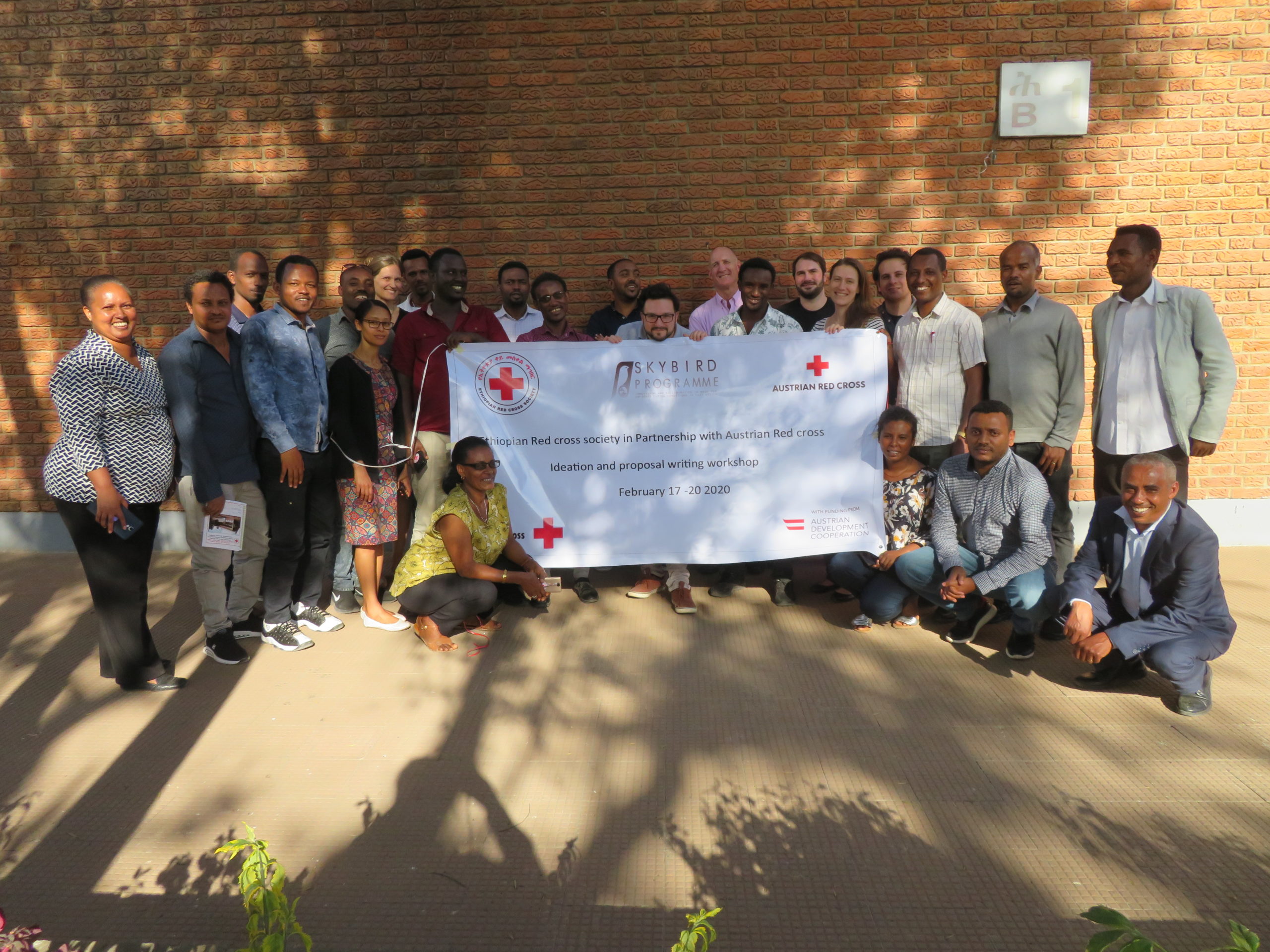
Challenges and expectation management at HQ
On the other hand, I have been afraid that it might be difficult to apply due to its new approach, i.e the micro-project ideas are initiated from the branches, and the proposals should be developed by the branches, which was not the common practice before in ERCS. However, after provision of idea creation and proposal writing training provided by AutRC experts, the branches have got adequate knowledge, and submitted 10 proposals in the first cycle of call for proposal. The next challenge was the process of evaluation to select the best proposals. This was solved by engaging professionals from universities, NGOs and consulting for each thematic area, identified in collaboration with the ERCS training centre.
In general, it was not difficult to convince ERCS management about the Programme. However, at the beginning of the Programme, the management team was very tight due to the development of a new internal structure going on for a long period. This made it difficult to organize a meeting with them. In addition, the occurrence of the COVID 19 pandemic had a negative impact to get them on board. What we did was that the program team had prepared a fact sheet about the Programme and shared it with all senior management members. This resulted in awareness creation and getting their full support on Programme implementation.
In my opinion, the Skybird Programme has created more awareness about the importance of WASH projects. In addition there is an improved awareness about the importance of climate change, green energy, livelihood, and gender & inclusion projects within the national society, particularly in project implementing branches. Experience sharing programs should be arranged to extend the current awareness level to other branches as well.
How about gender, diversity and inclusion?
Protection, Gender and Inclusion are currently given much attention by the National Society. PGI ToT training was conducted with the support of Netherlands RC, Austria RC and Swis RC and the training was cascaded to staff and micro-project teams of the implementing branches. The society has assigned one PGI focal person at ERCS HQ. In addition, there is a plan to develop a PGI guideline. The participants from 8 different branches have also developed a short-term action plan to assign a PGI focal person, cascade the training and mainstream PGI in to their projects.
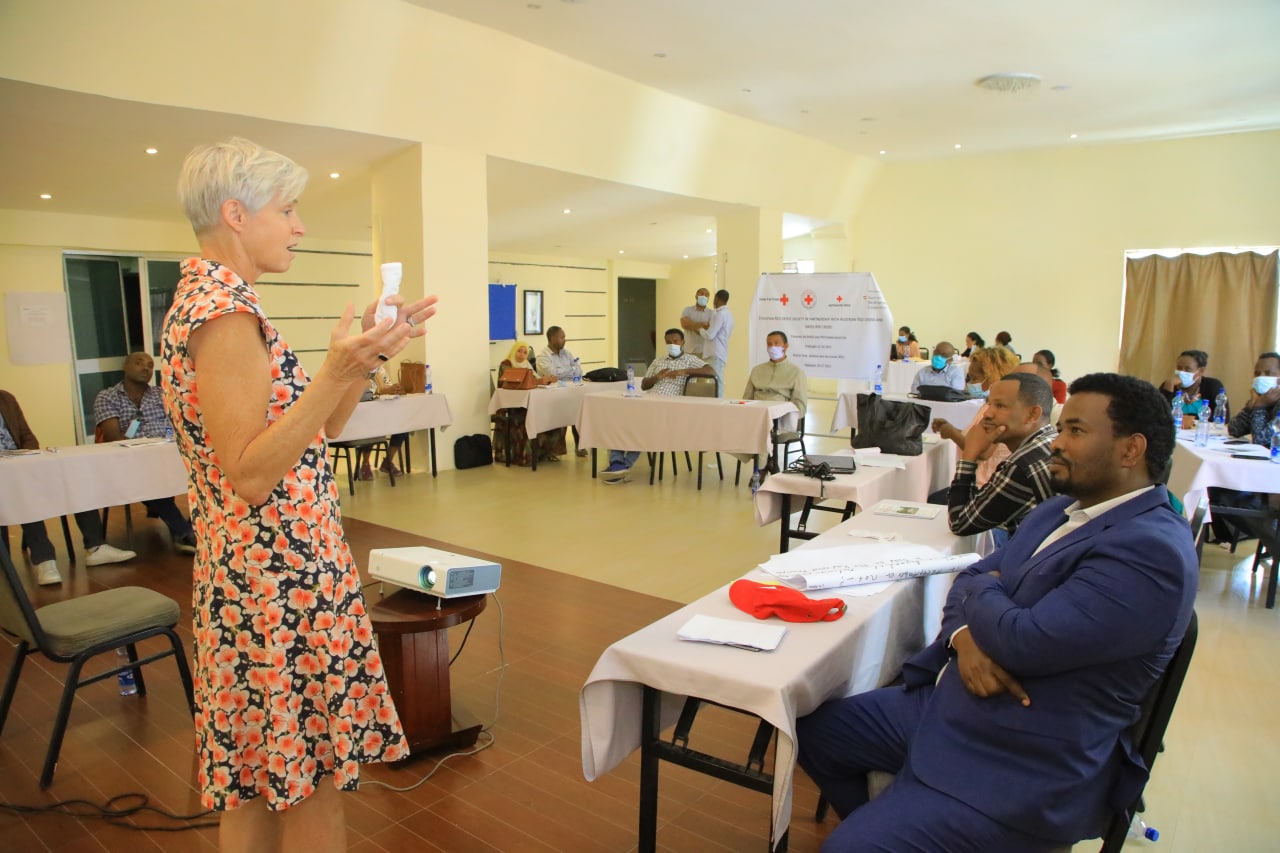
The major difficulties of the Programme that I observed so far include:
- The micro-project preparation and approval process was very intense and time consuming. For instance, starting from idea creation, micro project proposal development, and expert review, strategic panel and AutRC office approval was finalized by 6 months (February to July 2020).
- Some implementing branches were complaining the small amount of budget allocated which limits the amount of activities. In addition, the Programme did not allow the procurement of some equipments i.e laptops, which puts difficulty on timely reporting and communication.
- It was difficult to implement some proposed micro-project activities i.e wellfare improvement through public latrine and biogas development in Bahirdar city, due to unwillingness/ less attention given by the local administration to provide land for construction.
The benefits of the Skybird Programme (in my view and according to feedback from implementing branches) include:
- The capacity of branches to bring innovative ideas and developing micro proposals by their own is improved. This capacity development is not only limited to Skybird implementing branches but also to other projects i.e Swiss RC supported an early recovery COVID 19 response project in 4 branches. They used Skybird micro-project development formats and applied a similar project approval process.
- The Programme increased ownership of the micro-projects by the branches, because the projects were initiated, developed and implemented by the branches.
- The Programme has increased the acceptance of Red Cross branches by the government stakeholders and the community at large.
Outlook:
At the end of the Programme, the Programme implementing branches will have a capacity to compete for grants with-in or outside of the Red Cross movement. In addition, the national society will have a separate WASH unit clearly seen in its structure with approved WASH strategy and SOPs.
Gonziye Stove
Gonziye stoves allow for 45% reduction in fuel consumption. They can easily be carried and adjusted for different cooking techniques. (curtesy to South Omo Branch)
Learning site visit
Benishangul Gumuz project beneficiaries visit a learning site to learn about best practice agricultural techniques.

